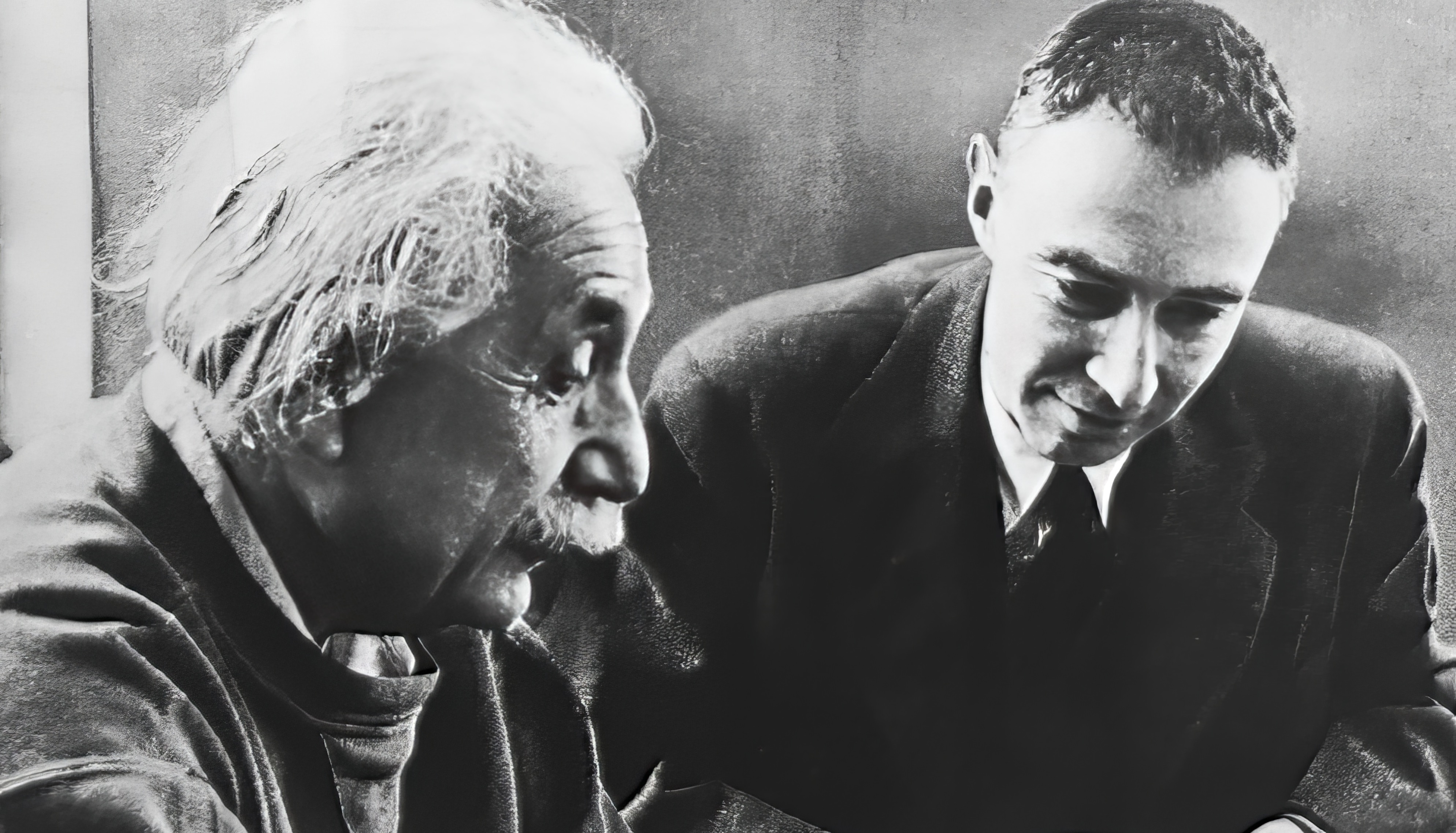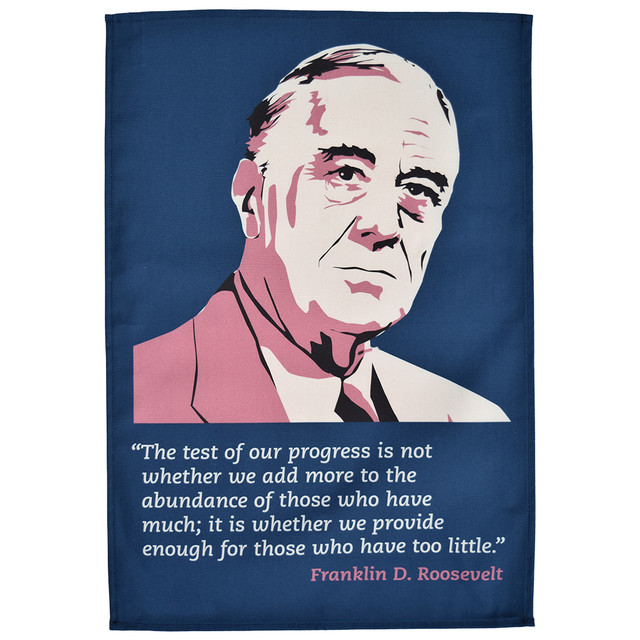J. Robert Oppenheimer: From New Hope to Red Scare
Posted by Pete on 18th Feb 2024
Oppenheimer's star rose and fell with the fortunes of left-wing politics in the US between the 1930s and 50s

Fellow physicists Einstein and Oppenheimer in around 1950
Today marks 57 years since J. Robert Oppenheimer passed away.
Oppenheimer has, of course, enjoyed a Hollywood-fueled resurgence over the last year.
Millions of people have been reminded of his remarkable story, or told it for the first time: his radical left-wing politics, his skill as a physicist and an organiser, his wartime service, and his betrayal and persecution by the US government during the Red Scare.
But it’s useful to remember that Oppenheimer, although in so many ways a remarkable individual, had some remarkably common political experiences.
In particular, his commitment to left-wing politics during the 1930s – and his persecution for it during the 1950s – were part of the wider rise and fall of radical politics in the US during the middle of the twentieth century.
Oppenheimer's work as part of the Manhattan Project led to a new debate about the danger and ethics of nuclear arms in the second half of the 20th century
Julius Robert Oppenheimer was born on 22 April 1904 in New York City. He belonged to a non-observant Jewish family.
His dad, Julius Seligmann Oppenheimer, had moved to the U.S. from Germany in 1888 without any money or resources, but had since become a wealthy textile importer, so, the younger ‘Oppie’ enjoyed a comfortable childhood.
He also had the advantage of being born intelligent. Robert excelled in various subjects at school, and not just the sciences.
His mom, Ella, was a painter. She instilled Oppie with a lifelong passion for the arts.
Oppenheimer spent most of the 1920s studying physics at prestigious universities across the US and Europe: Harvard, Cambridge, Göttingen.
He was already well-known in the new field of quantum mechanics by the time he got a job at Caltech in 1927.
As yet, Oppenheimer was uninvolved in politics. But this all began to change during the 1930s.
In 1934, responding to the rise of Nazism in Germany, Oppenheimer began donating 3% of his salary to help support German physicists to flee the country.
And this wasn’t an isolated act. Oppenheimer began to take a personal stand against fascism in the context of a wider, collective mobilisation in US society.
President FDR's New Deal coalition of the 1930s created a space for left-wing ideas to be discussed and tried in the US
Franklin Roosevelt’s New Deal was in full-swing by the mid-1930s. It created the space for increased labour organisation in the US, which regularly combined labour politics with anti-fascist internationalism.
There was also more room during the 1930s and 1940s for cooperation between the centre-left and the far-left of US politics.
The Communist Party of the United States (CPUSA) was a key member of American coalitions against fascism during this period, especially during the Spanish Civil War.
It was in this context of labour agitation and left-wing alliance that Oppenheimer was politicised.
He left his office at Caltech to participate in the 1934 West Coast dockers’ strike, and he raised funds for the left-wing Spanish Republic as it fought to save democracy from Francisco Franco.
It was these political experiences of anti-fascist and social-democratic activism, along with his many personal experiences of anti-Semitism, that made Oppenheimer so alert to the global threat posed by fascism.
When he was asked to join the Manhattan Project, Oppenheimer didn’t hesitate. The idea of Hitler’s Germany acquiring a nuclear bomb before the Allies was unthinkable.
Oppenheimer and many others on the US Left raised funds for those fighting fascism in 1930s Spain
See the Spanish Civil War tea towel
So Oppenheimer became a leftist as part of the renaissance of social-democratic politics in the U.S. during the New Deal era.
He joined the American Left as a collective project during the 1930s, and he also suffered in it as a collective project in the 1950s.
When Oppenheimer had his US government security clearance – earned during the war – rescinded by a kangaroo court in 1954, he became one of thousands of American progressives to be persecuted during the Red Scare.
People were fired, marginalised, or imprisoned for holding legitimate opinions about the value of social equality, international peace, anti-racism, and anti-fascism, all in the name of a top-down project of ‘anti-communism’ which in practice meant a full-frontal attack on all progressive politics.
In being so publicly cut out of US security policy in 1954, Oppenheimer was treated as suspect simply for being left-wing, just like Paul Robeson, WEB Du Bois, and countless others.
J. Robert Oppenheimer was no doubt an exceptional man – but his political experience was common on the mid-century US Left.
To understand Oppenheimer’s story, you have to understand the rise and fall of left-wing politics in America between the 1930s and 1950s.



